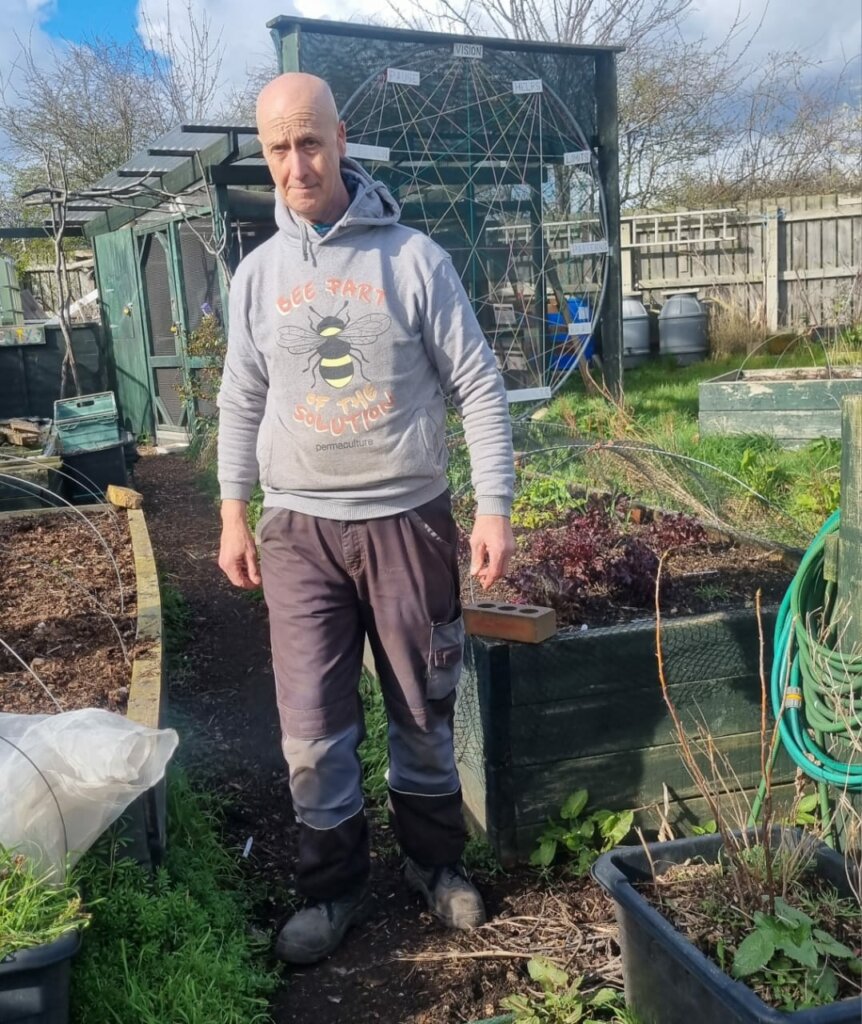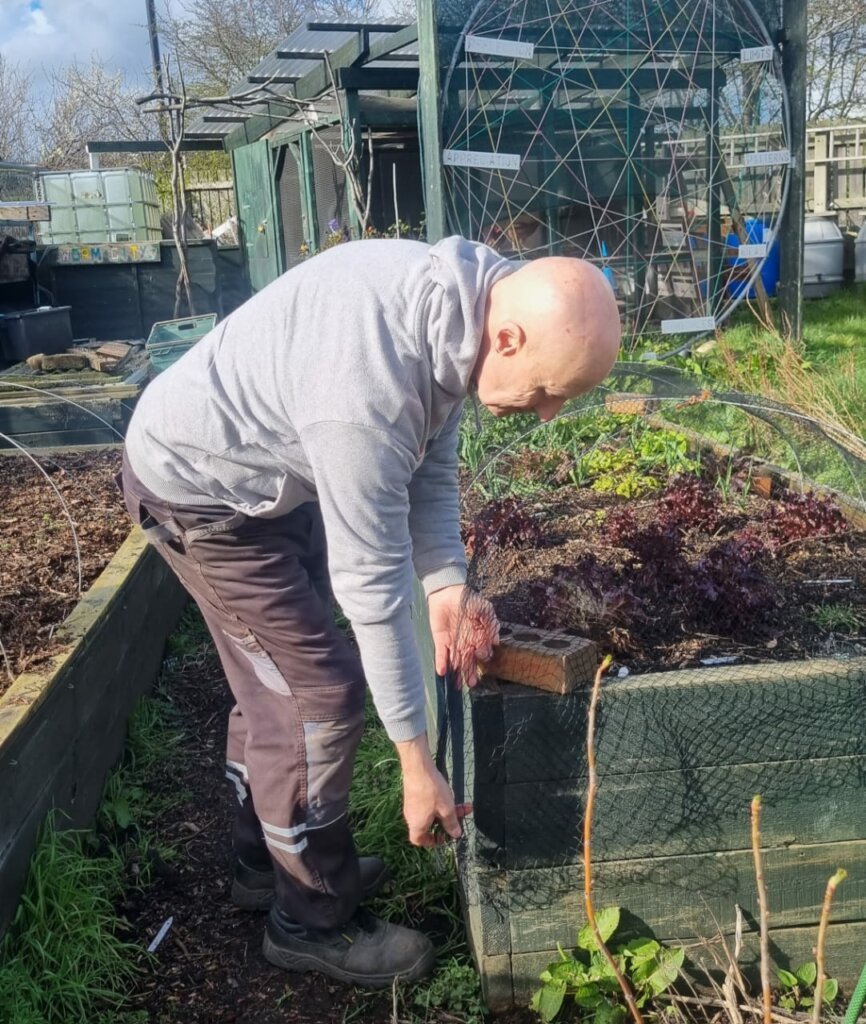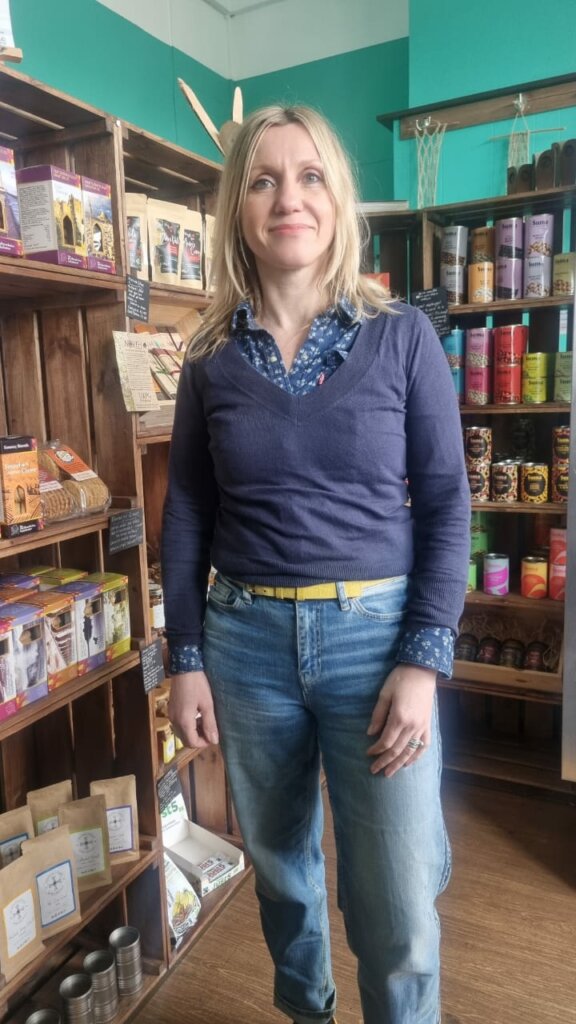A mission to zero hunger in Sunderland
Written by Godstime David on 31st March 2023
Sunderland man takes action to tackle food crisis- One meal at a time!

Allan Rowell- Founder Hendon Regenerative Culture Garden
In a time where the cost of living is constantly rising in the UK, many people find themselves struggling to put food on the table. For some, this struggle has become so overwhelming that they must turn to food banks to feed themselves and their families. However, in Sunderland, one man is taking a proactive approach to address this issue. Allan Rowell, a 65-year-old Sunderland resident, has taken it upon himself to grow food locally and donate a huge amount of it.
The former Council Labour member’s passion for farming and desire to make a positive impact on his community has led him to create the Hendon Regenerative Culture Garden(HRCG).
The pensioner’s story is a reminder that even in times of hardship, there are individuals who are willing to go above and beyond to help others. His selfless actions demonstrate the power of individual action and serve as a reminder of the importance of giving back to the communities.

Allan Rowell
“This is about feeding the need. I have always been interested in something called permaculture-a sustainable and regenerative farming practice to grow healthy food for the future. However, this all started 20 years ago when I met a group of people called ‘Transition Town Groups,’ who shared similar interests as me. I realised that there was a need to be met and I could contribute to this, so I stuck with them.’’
The pensioner said as in many cases, when groups get together to form transition towns, not everyone gets along for different reasons, so the group stopped, and the garden was signed over to him.
Rowell said: “To benefit the community, I came up with the idea of ‘feed the need’ because there is currently a need, and many people don’t have enough food. Fifty per cent of the food I grow gets donated to the Sunderland Community Soup Kitchen, and food banks while fifty per cent goes to Sunshine Cooperative- a small organic cooperative that supports me financially to carry on this process.
“HRCG is about food sovereignty. So we need to be creating more and more of our own food in this country. We import fifty per cent of the food, We need to produce a lot more of our own. Because the climate is going to change, and we know that there’s going to be problems around the world with food crops and we need to grow more food from compost.’’
Allan believes one of the ways out of the food crisis is to reduce food import and plant orchard trees, which is a long-term sustainable plan.
“We have lots of areas where we can grow food, and I am hoping in many parts of the country, people who are interested in permaculture will be more involved. But I’m going do what we need to do, and I’m trying to spread the word of what we need to do.’’
He also describes his gardening practice as a love story that involves growing food with compost and creating a connection between people and the soil.
“We’ve become obsessed with digging the soil. I had a difficult time stopping myself from doing it. Things grow, die off, and go back into the soil. This is a circular movement of the regenerative process, of how things grow and die.
“The love story part of it comes from the fact that we should be more connected with the soil, and love nature itself. As humans, we have so much hubris. Our life starts from the soil, and we need to understand the connection which is the love story.’’
“I get fulfillment from self-funding this garden. Growing food and knowing it gets to those in need is worth the money that I’m spending here. So it’s not just a simple case of getting food and spending it on ourselves,’’ he said.
Allan grows orchards, plum trees, red and black currant, lettuce, cabbage, tomatoes, cucumber, spring onions, and different kinds of salad leaves.
He urged members of the community to get involved in permaculture.
Claire Weyman, Co-founder of Sunshine Cooperative, said the organisation is a social enterprise that prioritises local food systems in the area, look at local food chains, and how to localise them even more.
“With Allan growing, he supplies us with some things like salad, spring onion, and beetroot. We can put them into the box which we deliver to our customers.
“It’s interesting because it is a community garden that he is running. We do not directly buy from Allen but we do donate to the garden monthly to help him with running it which makes it easier for him to donate to people at the Sunderland Soup kitchen, Bethany church, and others.”

Claire Weyman- Co-founder, Sunshine Cooperative
Weyman also said: “There’s not enough growing in the North East. We are known for other crops like cereal or dairy farming and not the place where fruits and vegetables are grown traditionally on a large scale.”
“I think anything we can do to grow locally will be worth it, although it might be an active rebellion against the supermarkets, but they can do effective farming in quite a detrimental way. The more we localise food from the grassroots, the more we take control of the food chain away from corporate interest, and the partnership is part of the process,” she added.
Claire said apart from working with farmers, Sunshine Cooperative runs a well-being academy that supports young people who lack confidence, a pre-employment programme to prepare those without work experience for an actual job and supports them on their journey to well-being.
She called on members of the community to show support by volunteering.
To volunteer or support Allan grow more food- contact- 07515901482, or email Claire at info@sunshinecooperative.co.uk.






